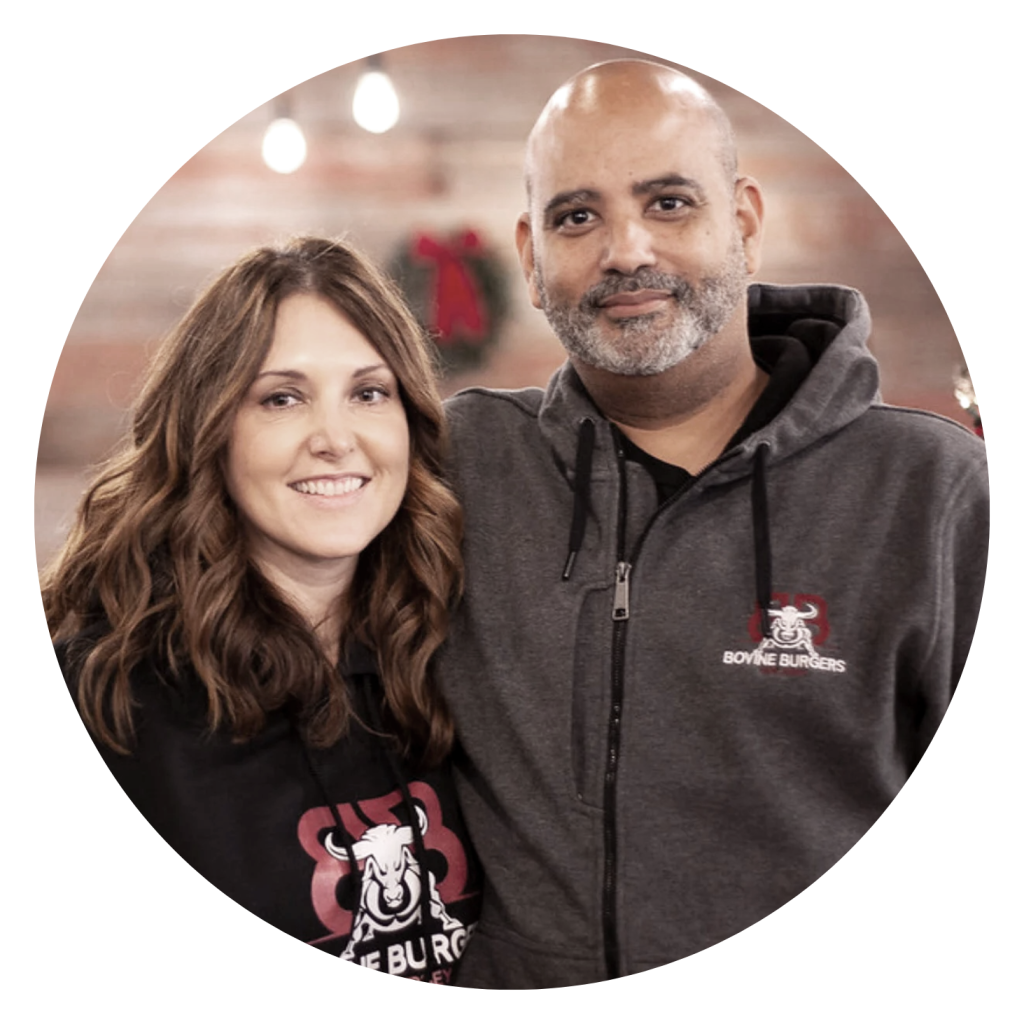Choosing the right path to business ownership can be challenging as there are several different models to choose from. Three popular options are 1) franchising, 2) starting a new business from scratch, or 3) buying an existing business. Each can be a route to a successful business model – but to ensure the optimal chances of success, you must know which one is right for you and your business idea.
Here, we’ll explore the pros and cons of each option, helping you determine which route aligns best with your goals, skills, and risk tolerance. Let’s get started with franchising.
Franchising: A Balance Between Independence and Support

Franchising offers the security of an established brand and support system while providing some of the independence and satisfaction of running your own business.
Franchise opportunities are likely a good choice for you if your skill set involves working with direction on many fronts. Franchises are typically turn-key: the business process is already set up and ready to go. Many elements in the business are mandated by the franchisor. They may, for example, want you to locate in a particular area because their market research indicates the demographics are favorable for their product. Brands such as pizza chains or fast food, for instance, prefer to locate in areas that have families with children and convenient car access. Marketing campaigns, the size of the franchise, the suppliers and vendors you use – all are very likely to follow specific franchisor recommendations, not the ideas of the franchise owners.
This kind of support can be ideal if your goal is to turn a profit as quickly as possible. That goal is almost sure to mesh with a major goal of the franchisor, which is keeping a steady flow of profits! Meanwhile, start-ups may take some time to become profitable, and buying a business can sometimes come with its own profit challenges.
Franchises also work very well if you have a low-risk tolerance. Successful franchises are much more likely to be more successful over time. Less than four percent of franchises fail, versus about 20 percent of start-ups in the first year and 50 percent by five years.
But there are cons to franchise ownership to consider. First off, being a franchisee might not be the best choice if you want to flex your creativity and skills, since the franchisor already has a set way of doing things.
Second, it can be quite expensive to purchase a franchise. You may need an initial investment of $500,000 to $1 million. Many franchises look for franchisees with substantial financial resources to boost their chances of success. Remember, the support you get isn’t free. You’ll pay a franchise fee, and franchisors will charge for everything from supplies to planning. Plus, you might not have much room to negotiate better deals with suppliers or vendors.
You’ll also be tied to the image and fortunes of a corporation. While this can be a good thing – franchises like McDonald’s and Pizza Hut seem invincible – it has also the potential to be harmful. Franchises like Subway and Chik-Fil-A have been involved in public relations struggles as well.
How do you know if franchising is right for you? Find out in Is Franchising Right For You?
Start-Ups: Following a Dream


Starting a business from scratch gives you total creative control and flexibility. If your goal is to bring a unique product to market with the freedom to do it your way, then starting a business from the ground up could be the perfect fit for you. Start-ups can be significantly less expensive than franchises or purchasing a business, too. It’s possible that your upfront costs to start a successful small can total $50,000 or even less, depending on your sector and industry.
If it’s freedom to chart your own course you’re looking for, an independent business start-up might be the right path for you. In a start-up, you’re the boss, and unless you have investors or partners, you’re the only top boss. The product design, the marketing plans, the sales strategies, your choice of vendors and suppliers, the location, the choice to rent or buy a place (or be online) – it’s all up to you. It’s an opportunity to hone your business skills.
And just like the big tech billionaires, you can earn most of the profits if your start-up does well. Even if you’re not aiming for billions or a tech empire, starting your own company means you can decide how much to pay yourself. Plus, as your business grows, you might even start issuing stock or bonds if it makes sense.
But the chief con of a start-up business is precisely the same as one of the pros: it is all up to you. If you have expertise in certain areas of a business, that’s great. But it’s rare for an entrepreneur to have skills in every single aspect of a business. You may be a marketing genius but have little expertise in financial forecasting. Or you may be a great numbers cruncher but can’t really visualize how best to reach your customer base.
As a result, you’ll need the ability to accept outside advice, know your limitations, and delegate as part of your skillset, especially as the business grows. Many businesses have slipped into unprofitability as the founders have tried to do everything from sales to bookkeeping. You’ll be in charge, but you might need to outsource tasks or hire people to help out. It’s also important to do your research and be open to advice to make sure you’re on the right track.
If you want to start a small business from scratch, you’ll also need a high-risk tolerance. Statistically, start-ups have a lower success rate than franchises. The path to profitability is also not completely assured and may not be fast. Many start-up entrepreneurs hang on to a salaried job while their business idea gains customers.
Finally, it may be more difficult for a start-up to obtain funding than for either a franchise or a purchased business. Lenders usually require at least three years of past financial results (as well as three years of forecasts). If you don’t have past financial results to show, you may find funding difficult.
Need business financing, but don’t know where to get started? Start by exploring the top 7 Best Options for Small Business Funding.
Buying an Existing Business: Another Blend
Buying a business provides immediate cash flow and a proven track record. Buying an existing business has some commonalities with buying a franchise. You are buying from independent business owners who provide a known quantity with specific products, customer bases, reputation, vendors, and (likely) vendors and suppliers. If you purchase the right business, you are set up for success, as presumably, your operation of the business will achieve the same amount of success as the previous operation.
The choice to buy an existing business with a track record of success can be a good choice if your goal is to operate a successful business with a minimum of disruption and choice on your part. If you have a relatively low-risk tolerance, it’s a choice that fits. You will likely have a reasonably quick road to profitability, more so than the average start-up.
You’ll also find funding easier than a start-up entrepreneur will because the business has a track record of profitability. If the business is known in the community, you will also benefit from repeat customers and goodwill and can likely follow an existing marketing strategy.
But there are also potential drawbacks. First, it can be quite expensive to purchase a business. You’ll need significant assets. Also, unlike buying a franchise, you’ll need to do your own research to make sure the business is priced fairly. You’ll have to look into every aspect of the business on your own, something you don’t usually do with a franchise.
Second, buying a business might not turn out as great as you expect. The switch from one owner to another can be rocky. You might discover problems that weren’t obvious before, like clashes among staff, outdated systems, or vendor contracts that are tough to get out of but no longer beneficial.
For that reason, you need to take a closer look at your skills and how much risk you’re comfortable with, more so than if you were buying a franchise. If a big problem comes up, one that could really impact the business, are you ready to handle it? Is that something you’d feel confident tackling?
Starting a new business is an exciting journey! Make sure to carefully consider your goals, skills, and risk tolerance to give your business the best shot at success.
Exploring Paths to Business Ownership


Choosing the right path to business ownership is key for aspiring entrepreneurs. Here, we outlined the three primary methods: franchising, starting a business from scratch, and buying an existing business, each with unique advantages and challenges.
- Franchising offers a blend of independence and support, ideal for those with low-risk tolerance. It provides a turn-key operation with established brands, but limits creative freedom and can be costly upfront.
- Starting a Business from Scratch provides total creative control and the potential for significant rewards. It’s suitable for those with high-risk tolerance and a desire to chart their own course, though it demands a comprehensive skill set and can face slow paths to profitability.
- Buying an Existing Business offers immediate cash flow and a proven business model. It suits those seeking stability and less operational disruption but requires significant upfront investment and thorough due diligence to avoid inheriting unforeseen problems.
Each path requires a careful assessment of personal goals, skills, and risk tolerance to choose the best route to business success. Best of luck in your journey to finding the right business path for you!
Ready to start a business? Follow 10 Steps to Starting a Business and get off to a great start.
How Guidant Financial Can Help
Need a hand with starting your business? At Guidant Financial, we’re here to help you figure out how much a business is worth and find the right financing for you, from SBA loans to debt-free options like 401(k) business financing, also known as Rollovers for Business Start-ups (ROBS).
We can even take care of your Bookkeeping & Tax and Payroll needs, freeing you up to focus on what really matters – growing your business. Get in touch with us today to see how we can support your business journey!
Call us today at 425-289-3200 for a free, no-pressure business consultation to get started — or pre-qualify in minutes for business financing now!





